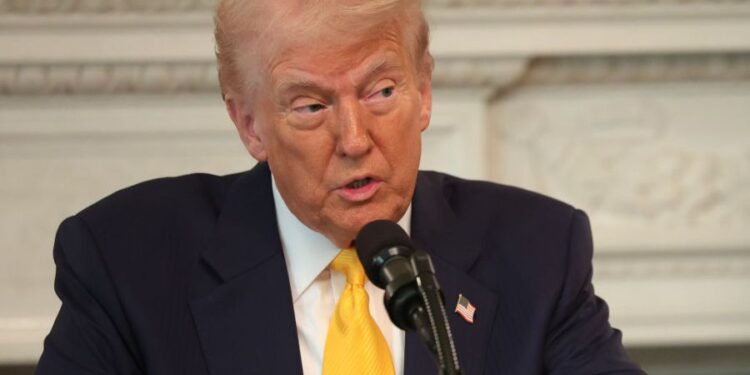
WASHINGTON (NewsNation) — President Donald Trump said Secretary of Agriculture Brooke Rollins will be doing “something” about rising egg prices throughout the U.S.
“She’s going to do something with the eggs,” Trump said. “We inherited all the problems.”
Trump made the comments on Friday.
Egg prices have nearly doubled in the last six weeks, with the average cost of a dozen cracking $8 on Thursday, according to data from the United States Department of Agriculture.
The average egg price is now at $8.03 per dozen, up from a previous price of $7.74 per dozen reported in the USDA’s Egg Markets Overview on February 14.
The average price has jumped by $3.42 since Jan. 10, when a dozen eggs cost about $4.61.
Agriculture Secretary Brooke Rollins told “Fox and Friends” that her first briefing after being sworn in was on bird flu.
“We are looking at every possible scenario to ensure that we are doing everything we can in a safe, secure manner but also to ensure that Americans have the food that they need,” Rollins told Fox News.
On the campaign trail, then-candidate Trump said lowering prices was one of his top priorities.
“When I win, I will immediately bring prices down, starting on day one,” Trump said during an August news conference.
With egg prices soaring, the Trump administration is planning a new strategy for fighting bird flu that stresses vaccinations and tighter biosecurity instead of killing off millions of chickens when the disease strikes a flock.
Normally when chickens or turkeys start dying from the disease, officials will “depopulate,” or destroy all the birds on the farm to prevent it from spreading.
But the resulting culling of millions of chickens per month has caused egg prices to skyrocket, with shortages that have led some retailers to ration sales. The average price of a dozen Grade A eggs in U.S. cities hit $4.95 in January, and the USDA predicts it will soar another 20% this year.
The poultry industry has long resisted vaccinating flocks against bird flu because of the potential impacts on export markets, as well as the expense. Most U.S. trading partners won’t accept exports from countries that allow vaccinations due to concerns that vaccines can mask the presence of the virus.







